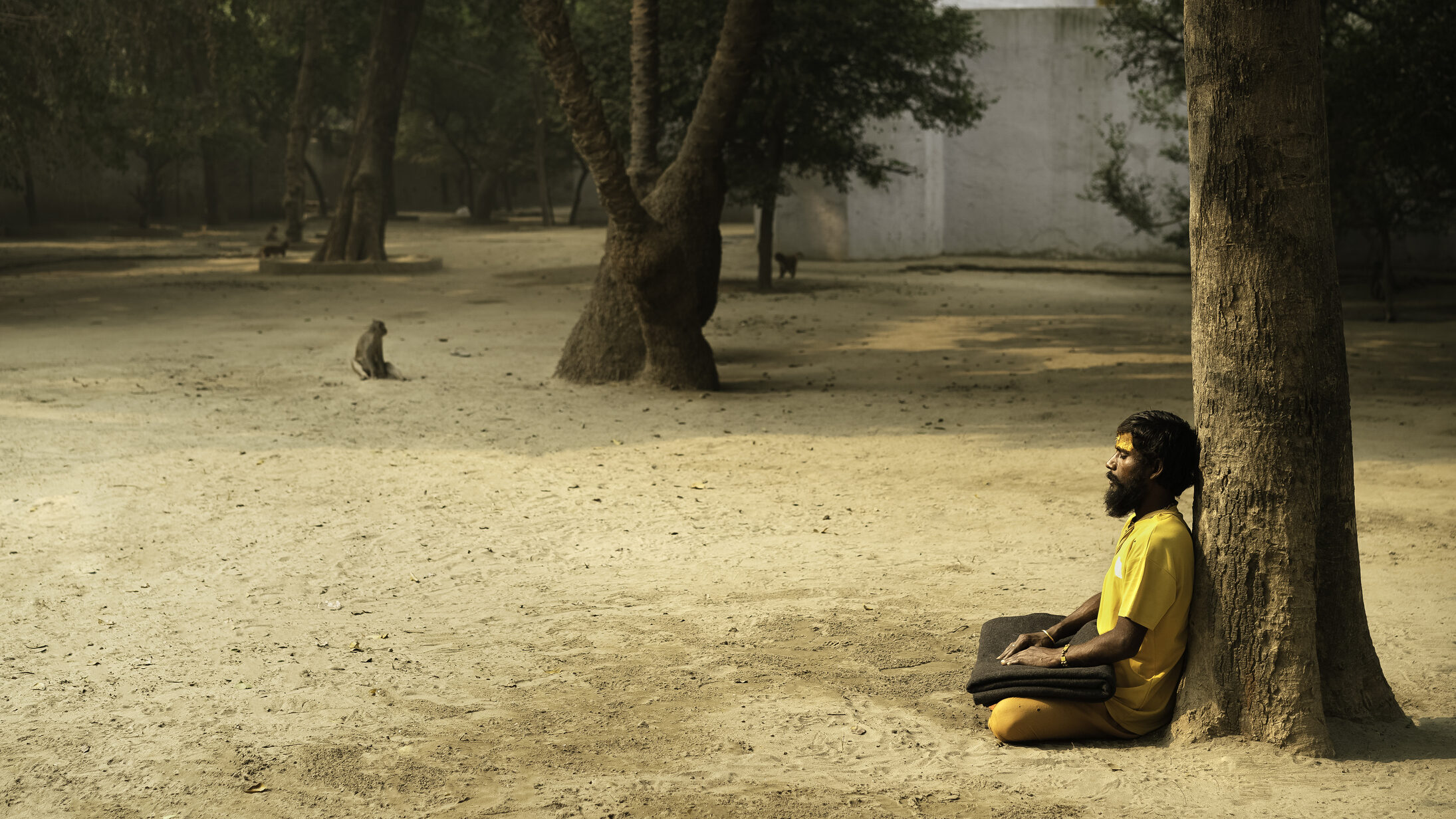
sambandha [connection, relationship, union, association]
In Caitanya-Caṛtāmṛta, Caitanya Mahāprabhu explains: ’One’s relationship with the Supreme Personality of Godhead [sambandha], activities in terms of that relationship [abhidheya], and the ultimate goal of life [prayojana] — these three subjects are explained in every aphorism of the Vedānta-sūtra, for they form the culmination of the entire Vedānta philosophy’ (Ādi-līlā 7.146).
In other words, every word on every page of every book in the spiritual tradition of Bhakti yoga contains these essential elements. The first and most important of these is sambandha (relation).
Where do these two kinds of relationships meet?
In mundane language, the word sambandha has ordinary associations. It refers to family relationships, working associations, contracts that form connections to objects, property, and so on.
But in spiritual experience sambandha refers to the mystery of spiritual relationships.
Sambandha is vital to spiritual practice because it names the relationship between every single individual and the Divine. Without sambandha we cannot know the Divine, aspire toward the Divine or understand what to do or how to move forward with our lives toward the Divine.
But what is a relationship? We have thousands of relationships in our lives, relationships with people, things, thoughts, and feelings. How should we understand these relationships, and do they have anything to do with a relationship to God?
Jiva Gosvami answers this question going back to basics: there is a relationship between something that experiences meaning and something that gives meaning. A relationship is tie between a conscious, living being—a soul—and the object of that consciousness, be it material or spiritual.
That conscious entity is the jīva, the individual living soul. According to the tradition of Bhakti yoga, this soul has three basic qualities: (1) it is eternal, (2) it is part and parcel of the soul of God, and (3) it is in its nature to serve.
(1) If the soul is eternal, its relations to other souls are eternal. Just as no soul will be born or die, no relation can be created or destroyed. Sambandha is the reality that invites us to discover the relationship we already have to God, and also to others.
(2) The soul is divine. It was created divine, fully perfect. It is the spiritual presence of God as an atom in the material body of the jīva. The only relation we must realise is therefore not to something far away, but to our own selves. A relation to our own soul is a relation to God.
(3) Finally, Bhakti adds one important quality to sambandha that unique among spiritual traditions: Relation is devotion. To be in relation is to serve, with feeling, from the heart.
To realise sambandha, the foundation of all experience of this world, is to realise that the divine is us, is eternally related to the divine in all others, through love.
Our relation to God and to other souls is just as eternal and perfect as the soul itself. But it is hidden from us by the delusion of our false egos. It is obscured by our way of surrounding ourselves with things and activities that have no lasting value.
The miracle of the practice of Bhakti is that it leads us to understand that not only are all relations good, but that all relations are perfect when fully evolved. Any relation we have with another soul—with our husband or our lover, with our child or our friend, with our baker, or our boss, with our competitor or even with our most bitter enemy—is in its pure form divine, and therefore perfect.
All sambandha, all relation, is already divine, even if we have not yet developed the spiritual eyes to see it. Any relationship can and will evolve, given time and patience, into a relation of perfect, pure, divine love.